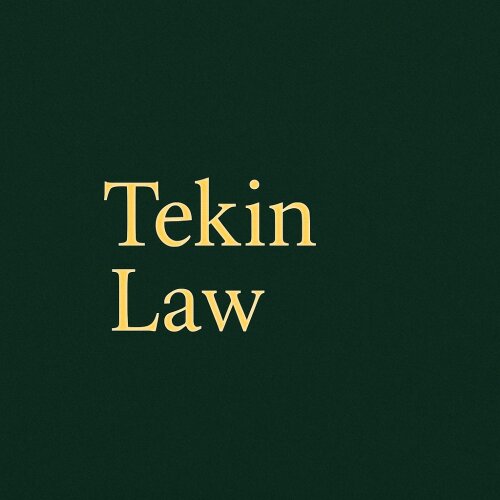Best Public-Private Partnerships (PPP) Lawyers in Turkey
Share your needs with us, get contacted by law firms.
Free. Takes 2 min.
Or refine your search by selecting a city:
List of the best lawyers in Turkey
Legal guides written by Tekin Law Firm:
- Arbitration in Turkey
About Public-Private Partnerships (PPP) Law in Turkey
Public-Private Partnerships, or PPP, refer to contracts or collaborations between government bodies and private sector companies aimed at developing, financing, and operating public services or infrastructure. In Turkey, PPPs are used extensively in sectors such as healthcare, transport, energy, education, and public housing. The Turkish government supports PPPs to bring in private expertise and financing for projects that benefit the public. The regulatory framework for PPPs in Turkey encompasses a wide range of models, including Build-Operate-Transfer (BOT), Build-Lease-Transfer (BLT), Build-Operate (BO), and Transfer of Operating Rights (TOR).
Why You May Need a Lawyer
PPPs involve complex legal frameworks, large financial commitments, and intricate allocation of risks between parties. You may need legal advice in scenarios such as negotiating PPP contracts, assessing project feasibility, securing permits and licenses, ensuring compliance with regulations, managing disputes, or navigating financing structures. Lawyers can also help explain your rights and responsibilities under Turkish PPP laws, draft or review contracts, and represent your interests in the event of disagreements with public authorities or private partners.
Local Laws Overview
The legal infrastructure governing PPPs in Turkey is a collection of laws and regulations applicable to the specific sector of the project. Some of the most common legislation includes the Public Procurement Law, Public Financial Management and Control Law, and sector-specific legislation such as the Health PPP Law and Highways Law. Key features include:
- Multiple PPP models tailored to sectors like energy, health, and transportation
- Project contracts often require approval from ministries or other governmental authorities
- Foreign investors are welcome, though certain restrictions may apply
- Bankability and risk allocation are addressed within the contractual framework
- Transparent tender and bidding procedures are mandated to select private partners
- Dispute resolution often involves both local courts and international arbitration
Due to the diversity of regulations and the dynamic nature of this field, consultation with a legal professional is highly recommended.
Frequently Asked Questions
What is a Public-Private Partnership (PPP) in Turkey?
A PPP in Turkey is a cooperative arrangement where a government entity and a private company share resources, risks, and rewards for developing and operating public infrastructure or services.
Which sectors most commonly use PPPs in Turkey?
PPPs are commonly used in transportation (such as highways, airports, and railways), energy projects, healthcare facilities, education, and public utilities.
Are there different PPP models in Turkey?
Yes, Turkey uses several models such as Build-Operate-Transfer (BOT), Build-Lease-Transfer (BLT), Build-Operate (BO), and Transfer of Operating Rights (TOR), depending on the sector and needs of the project.
How are PPP contracts awarded?
PPP contracts are typically awarded through public tender, ensuring competition and transparency. The specific process can vary based on the sector and project type.
Can foreign investors participate in PPP projects?
Yes, foreign investors and companies can participate in PPP projects in Turkey, although they may be subject to certain regulatory and sector-specific requirements.
What are the main legal challenges in PPPs?
Common challenges include navigating complex regulations, drafting comprehensive agreements, securing necessary licenses, allocating risks, and resolving disputes efficiently.
Who is responsible for financing PPP projects?
Project financing is often shared between the private sector partners, sometimes with support or guarantees from public authorities, international banks, or other financial institutions.
What happens in case of disputes?
Disputes in PPP projects can be resolved through local courts or, more commonly, through arbitration, including international forums, as stipulated in the contract.
Are there tax incentives for PPP investments in Turkey?
Some PPP projects may benefit from tax exemptions, reduced customs duties, or other incentives depending on project specifics and legislation.
How long do PPP contracts usually last?
The duration of PPP contracts varies based on the project but typically ranges from 10 to 30 years, allowing for sufficient time to recoup investment and profit.
Additional Resources
For more information and support regarding PPPs in Turkey, you may consider reaching out to the following resources:
- Republic of Turkey Ministry of Treasury and Finance
- Presidency of the Republic of Turkey Investment Office
- Ministry of Transport and Infrastructure
- Ministry of Health (for health sector PPPs)
- Public Procurement Authority
- International law firms and local bar associations with PPP experience
These organizations provide guidance, statistics, legal frameworks, and updates on ongoing and upcoming PPP projects.
Next Steps
If you are considering involvement in a PPP project or need legal advice, begin by gathering all relevant project details and documentation. Consult with a lawyer who is experienced in Turkish PPP law and familiar with your project's specific sector. An initial consultation can help you understand your legal position, responsibilities, and risks. Prepare to provide documentation about the project structure, partners, financial model, and any correspondence with government authorities. Seeking early legal guidance can prevent costly mistakes and ensure smoother project implementation.
Lawzana helps you find the best lawyers and law firms in Turkey through a curated and pre-screened list of qualified legal professionals. Our platform offers rankings and detailed profiles of attorneys and law firms, allowing you to compare based on practice areas, including Public-Private Partnerships (PPP), experience, and client feedback.
Each profile includes a description of the firm's areas of practice, client reviews, team members and partners, year of establishment, spoken languages, office locations, contact information, social media presence, and any published articles or resources. Most firms on our platform speak English and are experienced in both local and international legal matters.
Get a quote from top-rated law firms in Turkey — quickly, securely, and without unnecessary hassle.
Disclaimer:
The information provided on this page is for general informational purposes only and does not constitute legal advice. While we strive to ensure the accuracy and relevance of the content, legal information may change over time, and interpretations of the law can vary. You should always consult with a qualified legal professional for advice specific to your situation.
We disclaim all liability for actions taken or not taken based on the content of this page. If you believe any information is incorrect or outdated, please contact us, and we will review and update it where appropriate.
Browse public-private partnerships (ppp) law firms by city in Turkey
Refine your search by selecting a city.















